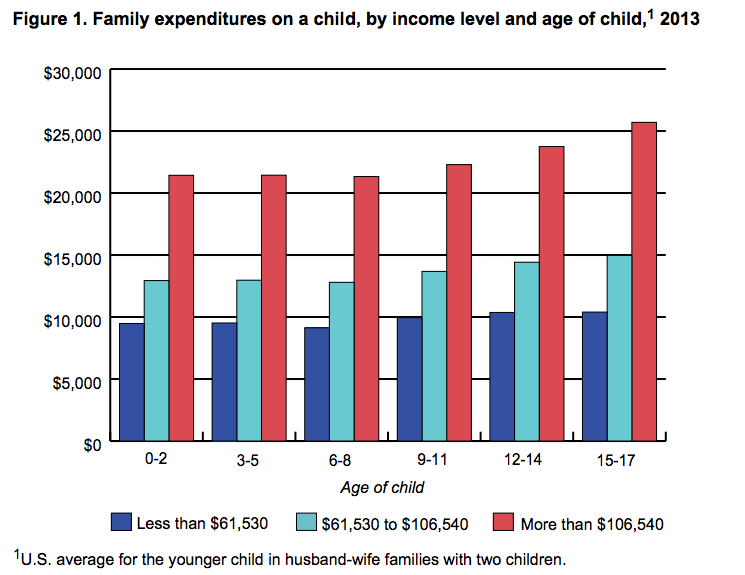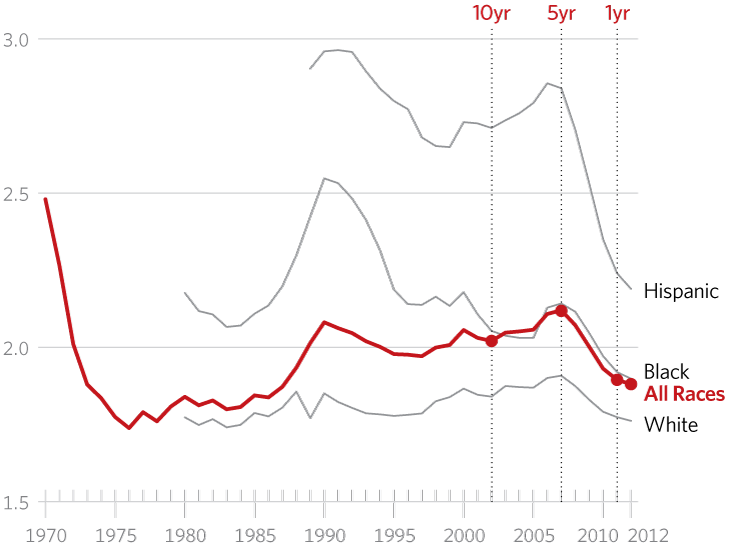The average cost of raising a child is over $245,000 – and that doesn’t cover college costs.
That number comes from a report released Monday by the U.S. Department of Agriculture. It includes money spent on a child’s education, housing and food.
But while $245,000 is the number dominating headlines (including – OK, OK — my own), it’s not the most important number.
That’s because it’s the average number, not the minimum number. It’s an average from a span that includes those who are struggling to stay afloat, and those who are buying $1,250 strollers for their children.
The chart below takes into account parents’ income level and shows that there are plenty of kids raised without parents spending nearly a quarter of a million on them:
Furthermore, don’t think that you have to allot that $245,000 number for each child if you opt to have a large family: “To estimate expenses on three or more children in husband-wife families, 22 percent should be subtracted from the total expense for each child’s age category,” states the report, adding that “as family size increases, costs per child for food decrease less than for housing and transportation. Much housing space is used in common, and car trips can serve more than one child.”
So why does this matter?
Well, one reason is couples often opt to delay child-bearing because of financial concerns, as Jonathan V. Last, author of “What to Expect When No One’s Expecting,” writes in the Heritage Foundation’s 2014 Index of Culture and Opportunity:
“Fertility dropped steeply after 2007 as recession gripped the country and unemployment soared: Young adults and people in their prime childbearing years decided to postpone childbearing until their economic prospects improved.”
And that’s concerning because fertility is below the 2.1 replacement rate in the United States, as you can see from this chart from the 2014 Index of Culture and Opportunity:
It’s not cheap to raise a kid. But nor does it have to be insanely expensive.
You easily can spend $245,000 on a child over 17 years. But you don’t have to – and hopefully, those couples considering parenthood or having another child are keeping that in mind.
































